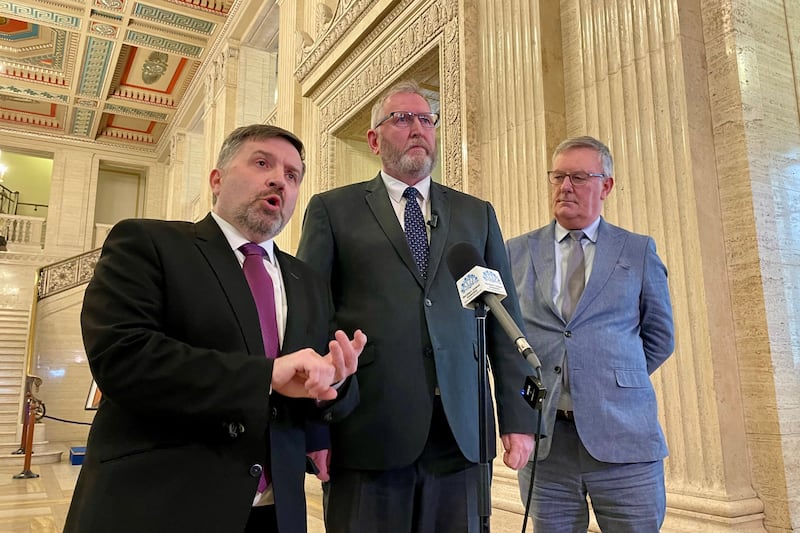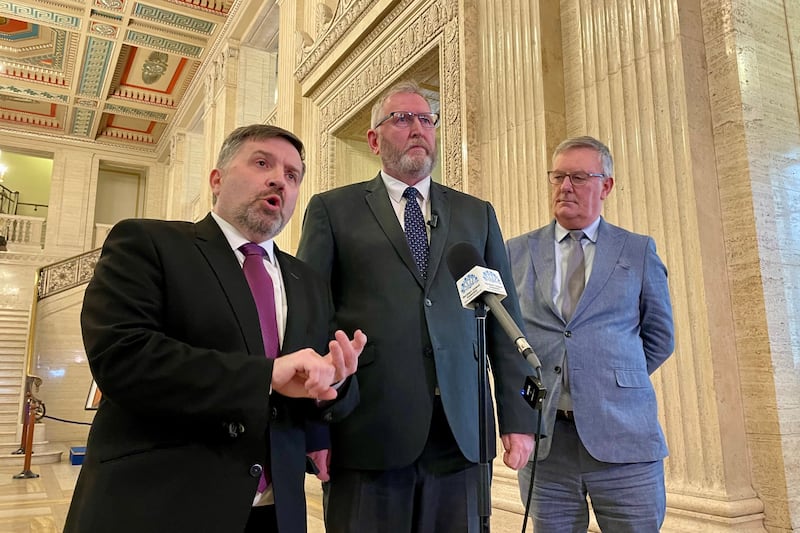:: The Chancellor’s vision for an inclusive economy includes measures that will boost confidence across the small business community as they face extremely challenging trading conditions. Tens of thousands of modest-earning local firms and self-employed people will be relieved that there will be no VAT tax grab which would have caused huge economic damage - Wilfred Mitchell, Northern Ireland policy chair at the Federation of Small Businesses
:: The jury is out as to just how much this Budget really delivers for the Northern Ireland economy. On City Deals, we're disappointed and surprised Derry was not included. While we welcome the extra £650m extra for the Executive, it's extremely frustrating we have no government in place to spend these additional funds - Retail NI chief executive Glyn Roberts
:: It was good to see the Chancellor focus on some of the longer-term drivers of economic success such as skills, R&D, infrastructure and investment.
Building a skills system that supports the fourth industrial revolution is the right ambition but we need to make sure the approach is both stable and joined-up. For this Budget to be a judged a success, the challenge will be turning words into action, and for government and business, this starts next week with the industrial strategy - Angela McGowan, CBI director Northern Ireland
:: The addition to public spending in Northern Ireland is moderate - £660m but probably divided over three or four years. Growth of about £150m-220m annually is about 1.5-2 per cent, which is likely to be just below inflation. Northern Ireland’s regional growth rate may not be much higher than 1 per cent this year and next year - Dr Esmond Birnie, senior economist at Ulster University Economic Policy Centre
:: We don't yet know the split between current and capital spending in the extra £650m for Northern Ireland, but we would strongly urge a prioritisation of capital funding to spend on key infrastructure projects that support the economy and boost productivity. We're encouraged by the announcement regarding a Belfast City Deal, which should enhance regional infrastructure - Dr Patrice Cairns, RICS policy manager for Northern Ireland
:: We have been calling for the abolition of air passenger duty for a number of years and we welcome the announcement that a review will now begin. It is clear APD is a competitive disadvantage to Northern Ireland’s tourism offering and therefore our wider economy - Hospitality Ulster chief executive Colin Neill
:: While the Chancellor has allocated an extra £650m to Northern Ireland in the Budget over the next three years to 2020, there is no Executive in place so it is unclear how the money will be spent and where the priorities lie across key areas including the economy, infrastructure, health and education - NI Chamber chief executive Ann McGregor
:: With only passing references to Northern Ireland and uncertainty as to exactly what the £650m reference of funding can be used for, next year will see massive cuts to expenditure resulting in job losses, reduced services and a declining infrastructure. This budget proves the need for our politicians to resolve their differences, get the institutions up and running and to tackle the Prime Minister and Chancellor to get a better deal for Northern Ireland - NIPSA deputy general secretary Bumper Graham
:: Even if the pro’s and con’s of today announcement, including the abolition on stamp duty on first-time buyer purchases up to £300k, are open to debate, the simple fact is that the Government is coming forward with proposals. Northern Ireland, put simply, is not. The Budget reflects welcome uplifts in our capital expenditure over the coming three years, which is hugely welcome given the undoubted direct and indirect benefits of infrastructure investment - Construction Employers Federation managing director John Armstrong
:: When compared to the £2bn and £1.2bn funding for the Scottish and Welsh governments respectively, the £660m Northern Ireland has received the lowest amount per head of population. As predicted, the speech contained little in terms of major tax changes, although the exemption from stamp duty for first-time buyers was much wider than predicted - Peter Legge, partner at Grant Thornton Northern Ireland








